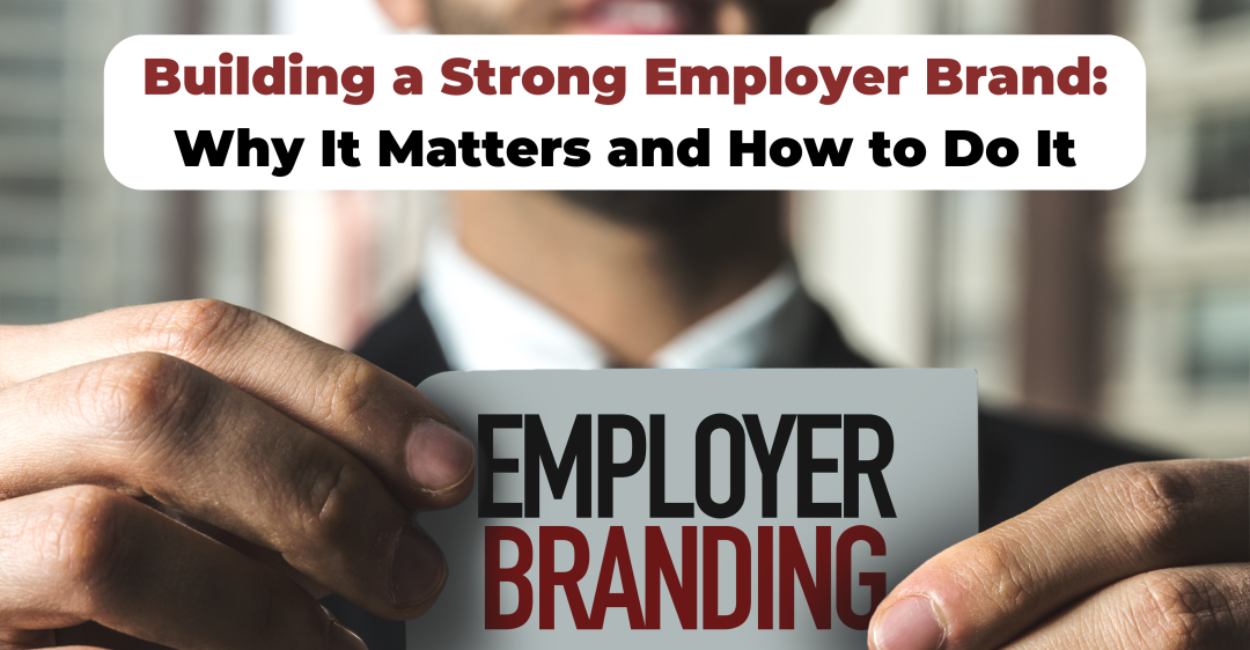Building a Strong Employer Brand: Why It Matters and How to Do It
In today's competitive job market, attracting and retaining top talent is crucial for organisations. A strong employer brand—your company's reputation as a workplace—plays a key role. It encompasses your culture, values, work environment, benefits, and opportunities offered to employees. Here’s why it matters and how to build it effectively.
Why Employer Branding Matters
- Attracting Top Talent: A robust employer brand attracts high-calibre candidates. When potential employees perceive your company as a desirable place to work, they are more inclined to apply, giving you an advantage, especially in industries with high demand for skilled professionals.
- Employee Retention: A positive employer brand not only attracts talent but also helps retain it. High retention also contributes to a stable, experienced workforce.
- Enhanced Employee Engagement: Employees who feel valued and appreciated are more engaged and motivated. A strong employer brand fosters a sense of belonging and pride, leading to increased productivity and innovation.
- Improved Company Reputation: Companies known for treating their employees well enjoy a favourable reputation among customers, investors, and the public. A good employer reputation also makes the company more resilient during tough times.
- Cost Savings: Investing in your employer brand can lead to significant cost savings. Additionally, a strong employer brand can lessen the need for expensive recruitment campaigns.
How to Build a Strong Employer Brand
- Define Your Employer Value Proposition (EVP): Your EVP is the unique set of benefits and values you offer employees. Identify what differentiates your company, such as culture, career development opportunities, work-life balance, and benefits. Ensure your EVP aligns with your business goals.
- Showcase Your Company Culture: Highlight your workplace’s unique aspects through employee testimonials, videos, and social media. Encourage employees to share their experiences and stories about working at your company.
- Improve the Candidate Experience: The treatment of candidates during recruitment significantly impacts your employer brand. Ensure a transparent, respectful, and efficient recruitment process. Provide timely feedback and keep candidates informed. Positive experiences, even for those not selected, can lead to recommendations.
- Invest in Employee Development: Offering professional growth and development opportunities is crucial for a strong employer brand. Invest in training, mentorship, and career development initiatives. Continuous learning opportunities make your company attractive to ambitious professionals.
- Promote Work-Life Balance: Ensure your policies support a healthy work-life balance. When employees feel their well-being is prioritised, they are more likely to be satisfied and engaged at work.
- Leverage Social Media: Use platforms like LinkedIn, Facebook, Twitter, and Instagram to promote your employer brand. Showcase your culture, share employee stories, and highlight achievements. Engage with your audience by responding to comments and messages promptly. Social media also allows employees to share their positive experiences.
- Encourage Employee Advocacy: Employees can be your best brand ambassadors. Encourage them to share their positive experiences on social media and review sites like Glassdoor. Recognize and reward those who promote your company. Employee referrals can also be a valuable source of new hires.
- Measure and Improve: Regularly assess your employer brand to identify areas for improvement. Use surveys, focus groups, and feedback from employees and candidates to gather insights. Monitor your online reputation and respond to reviews and comments.
Case Study: Successful Employer Branding at Zecruiters
Zecruiters has built a strong employer brand by focusing on the following strategies:
- Creating a Positive Work Environment: Zecruiters fosters a supportive and collaborative work environment where employees are encouraged to share ideas and innovate.
- Employee Recognition: Regular recognition and rewards for employee achievements boost morale and engagement.
- Professional Development: Zecruiters invests in training and development programs, offering career growth opportunities.
- Work-Life Balance: Flexible working hours and remote work options help employees maintain a healthy work-life balance.
- Open Communication: Open communication with employees and candidates builds trust and transparency.
Conclusion
Building a strong employer brand requires ongoing commitment and effort. By creating a positive work environment, offering growth opportunities, and showcasing your company culture, you can attract and retain top talent. Your employer brand is not just about what you say but also about what you do. Consistently delivering on your promises and valuing your employees will help build a reputation as an employer of choice.


